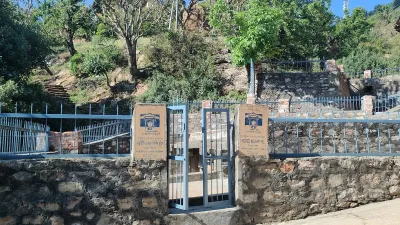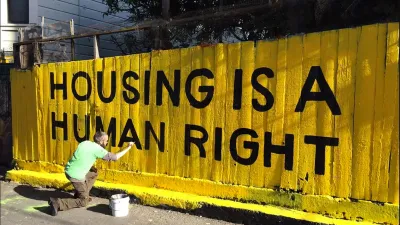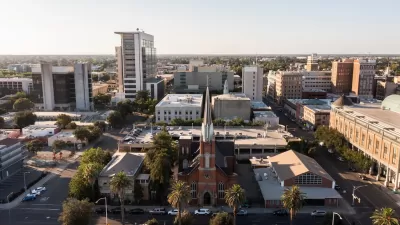In an interview, Rep. Jim Oberstar gives a retrospective of American infrastructure funding and talks about the need to consider transportation in light of the "post-interstate era."
"REP. OBERSTAR: What we have after the interstate era, is if there is a roadway here, we build and expand on that road. Because you have an 80–20 funding formula for highways - 80 percent federal funds, 20 percent state funds - and, on the other side, a transit funding program that is project-oriented - some projects might get 50 percent federal funds, some might get 60 percent, some might get only 40 percent - if you are a state department of transportation managing funds, you look at the formula and you say, "Well, we get 80 percent of the money if we build the road. We only get 50 percent or less if we invest in the transit system.""
"Funding is skewed away from transit and into highways because transit grew up in a different environment. It was a spin-off of railroads. It was during the 1960s, just before the creation of Amtrak. The railroads wanted to get rid of their passenger service. And they wanted to pass it off as a transit program. And secondly, transit was considered something to help the elderly and the disabled and the poor - it was a social program instead of a transportation program.
For example, Los Angeles had one of the most extensive streetcar systems in the country. But, they tore up the tracks, put in highways, roadways, streets and paved to accommodate the car. We have suburbs because we have the car. We have exurbs because of the car. Now, we have to transform our thinking in America."
Thanks to Franny Ritchie
FULL STORY: Rep. Oberstar on the transportation bill and reform

Maui's Vacation Rental Debate Turns Ugly
Verbal attacks, misinformation campaigns and fistfights plague a high-stakes debate to convert thousands of vacation rentals into long-term housing.

Planetizen Federal Action Tracker
A weekly monitor of how Trump’s orders and actions are impacting planners and planning in America.

Chicago’s Ghost Rails
Just beneath the surface of the modern city lie the remnants of its expansive early 20th-century streetcar system.

Bend, Oregon Zoning Reforms Prioritize Small-Scale Housing
The city altered its zoning code to allow multi-family housing and eliminated parking mandates citywide.

Amtrak Cutting Jobs, Funding to High-Speed Rail
The agency plans to cut 10 percent of its workforce and has confirmed it will not fund new high-speed rail projects.

LA Denies Basic Services to Unhoused Residents
The city has repeatedly failed to respond to requests for trash pickup at encampment sites, and eliminated a program that provided mobile showers and toilets.
Urban Design for Planners 1: Software Tools
This six-course series explores essential urban design concepts using open source software and equips planners with the tools they need to participate fully in the urban design process.
Planning for Universal Design
Learn the tools for implementing Universal Design in planning regulations.
planning NEXT
Appalachian Highlands Housing Partners
Mpact (founded as Rail~Volution)
City of Camden Redevelopment Agency
City of Astoria
City of Portland
City of Laramie





























